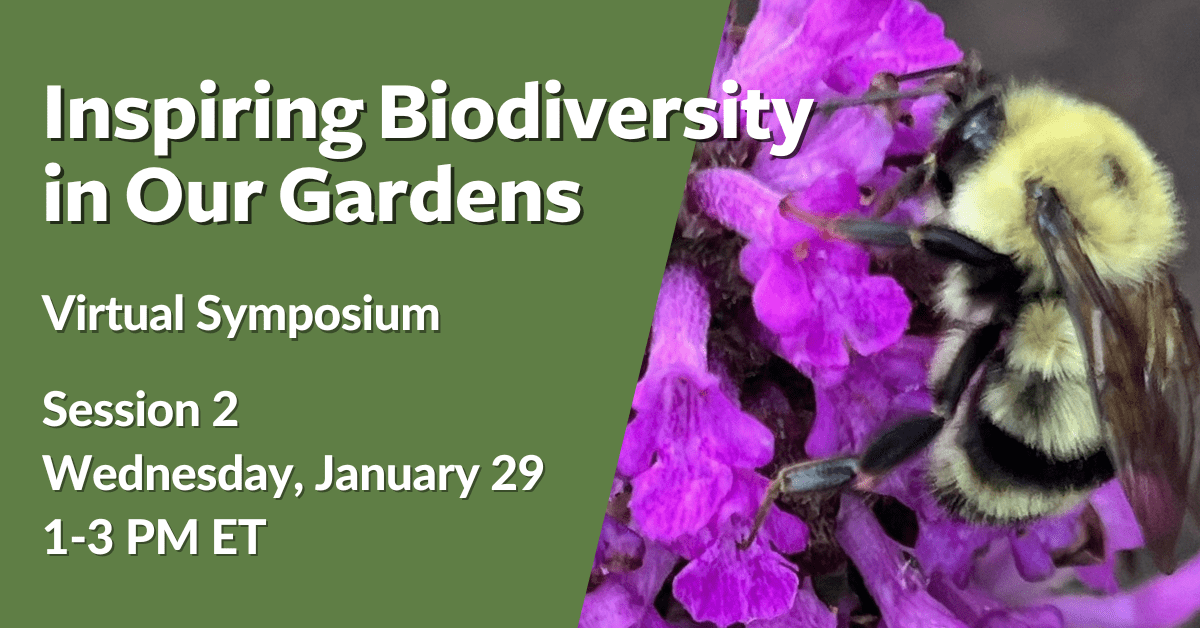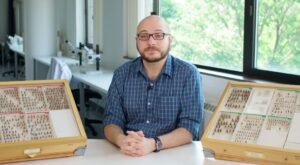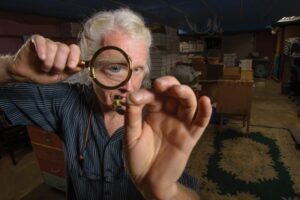

SESSION 2: Honey Bees and Native Bees—What You Don’t Know
Wednesday, January 29, 2025
1:00 to 3:00 PM ET
The Collective Intelligence of the Honey Bee: Exploring Their Symbolic Communication
Dr. David Peck, Director of Research and Education at Betterbee, Greenwich,CT
The honey bee colony has been termed a superorganism because this takes the form of morphologically specialized individuals, like queens or workers. Tasks and subtasks are divided between groups at different developmental stages leading to greater productivity. The term social physiology refers to mechanisms whereby members communicate and coordinate their activities. The dance language communication system to share foraging sites is complex, requiring cognitive mapping skills and is modified by the earth’s magnetic field. Dr. Peck will also explain and illustrate the intricate decision-making and communication involved in the decision to swarm and then locating a new home.
Native Bees Are Picky—What You Plant Matters
Sam Droege, Wildlife Biologist at USGS Patuxent Wildlife Research Center, Laurel, MD
Why is there such a diversity in size, shape, color, odor and timing of bloom in our regional plants? It’s all about the native bees…and 200 million years later the bee and plant interactions have become more complex. Saving native bees and saving native plant diversity is complicated, involving much more than putting clover in your lawn. The details are fascinating.
About the Presenters
 Dr. Peck is the Director of Research and Education at Betterbee in Greenwich, CT, where he assists in product development and research. His doctoral work in Cornell University’s Department of Neurobiology and Behavior was supervised by Dr. Tom Seeley, author of Honey Bee Democracy and The Wisdom of the Hive. Dr. Peck’s focus is on varroa mite/bee interactions including fieldwork in Newfoundland, Canada (where varroa still has not arrived) and Madagascar. He served as a teaching postdoctoral fellow in Cornell’s Department of Entomology.
Dr. Peck is the Director of Research and Education at Betterbee in Greenwich, CT, where he assists in product development and research. His doctoral work in Cornell University’s Department of Neurobiology and Behavior was supervised by Dr. Tom Seeley, author of Honey Bee Democracy and The Wisdom of the Hive. Dr. Peck’s focus is on varroa mite/bee interactions including fieldwork in Newfoundland, Canada (where varroa still has not arrived) and Madagascar. He served as a teaching postdoctoral fellow in Cornell’s Department of Entomology.
 Sam Droege is a wildlife biologist at USGS Patuxent Wildlife Research Center in Laurel, MD. Sam has a B.S. from the University of Maryland and M.S. from State University of New York. Sam’s list of major accomplishments is long. He has coordinated the North American Breeding Bird Survey Program, developed the North American Amphibian Monitoring Program, the Bioblitz, Cricket Crawl and Frogwatch USA programs. Currently his team is running an inventory and monitoring program for native bees. They are developing tools and techniques manuals, a bumblebee floral survey for citizen, along with online identification guides for North American bees at Discover Life and producing public domain hi-resolution photographs of bees, insects and flowers.
Sam Droege is a wildlife biologist at USGS Patuxent Wildlife Research Center in Laurel, MD. Sam has a B.S. from the University of Maryland and M.S. from State University of New York. Sam’s list of major accomplishments is long. He has coordinated the North American Breeding Bird Survey Program, developed the North American Amphibian Monitoring Program, the Bioblitz, Cricket Crawl and Frogwatch USA programs. Currently his team is running an inventory and monitoring program for native bees. They are developing tools and techniques manuals, a bumblebee floral survey for citizen, along with online identification guides for North American bees at Discover Life and producing public domain hi-resolution photographs of bees, insects and flowers.
Please use this Zoom link to register for
SESSION 2: Honey Bees and Native Bees—What You Don’t Know